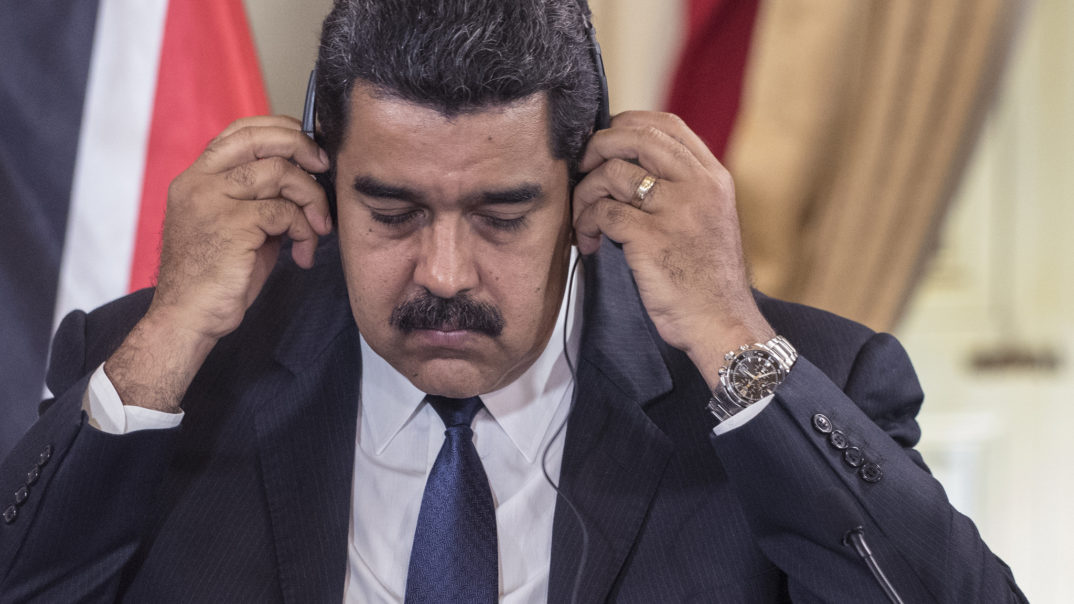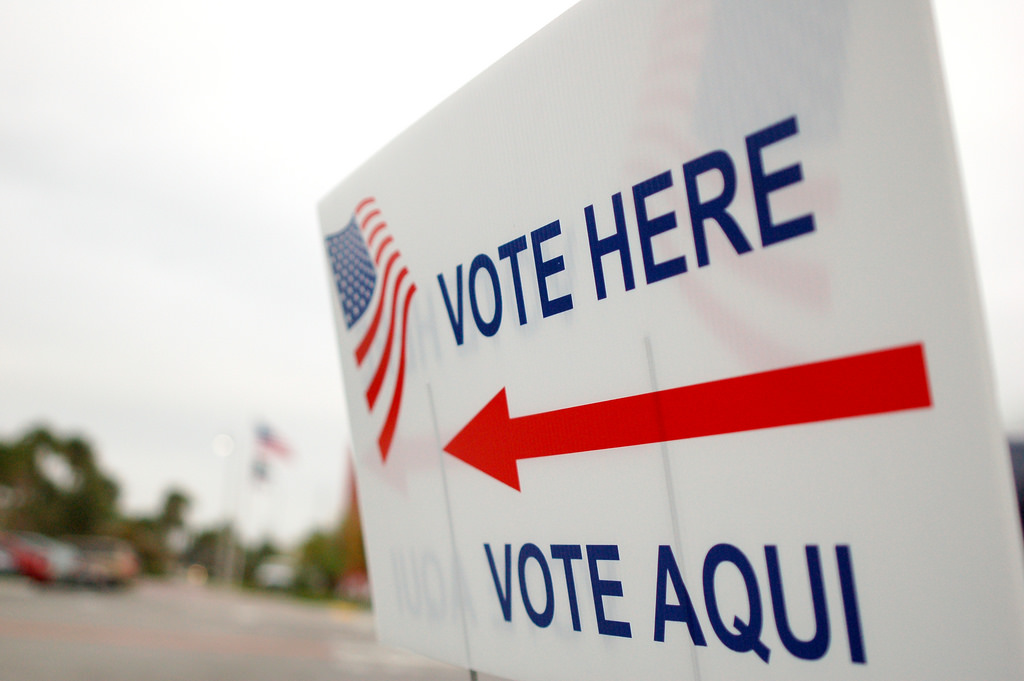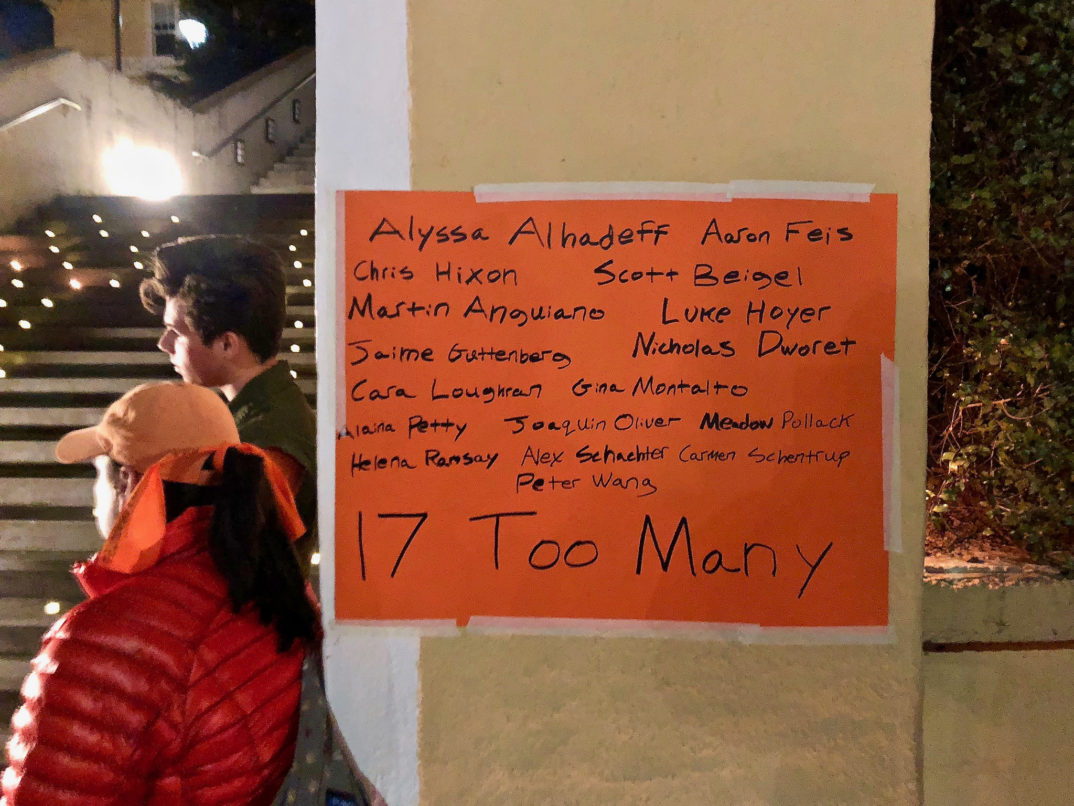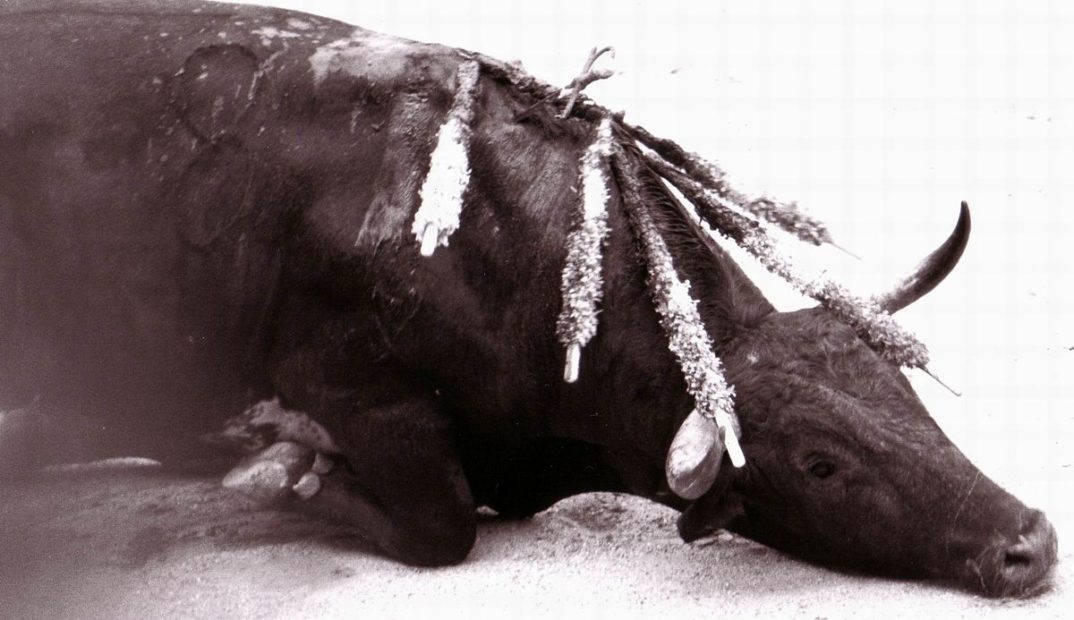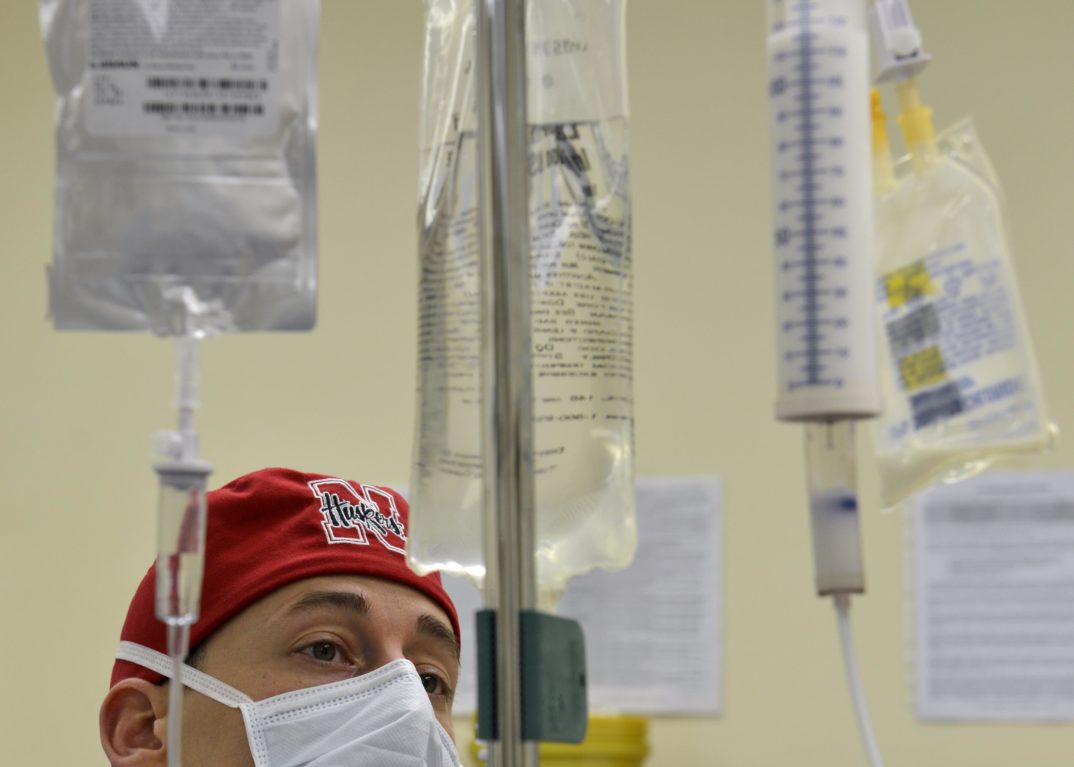Venezuela is scheduled to have presidential elections in April 2018. Although not technically illegal, this is unexpected. In 2016, Venezuela was expected to have regional elections, but Nicolas Maduro’s regime suspended them until 2017. He claimed it was due to economic reasons, but everyone suspected that he did so in order to gain some time, as his party was extremely unpopular at the time. Now, presidential elections have been called for April, although they were originally scheduled for December. Again, this is widely seen as a cynical ploy: the opposition forces are currently at a very weak point, and Maduro seizes the opportunity to defeat his rivals.
The National Popular Vote Bill: Innovative Solution or End Run around the Constitution?
Donald Trump won the 2016 presidential election with 306 Electoral College votes. He became the President of the United States despite the fact that more people voted for Hillary Clinton. Clinton won the popular vote by over 2.8 million votes. This result revived a familiar debate—should we abolish the Electoral College? At this point, advocates for a change to the system acknowledge that it is unlikely that the change will come about via an amendment to the Constitution. As a result, lawmakers have put their creativity to the test.
Questions on the Ethics of Triage, Posed by a Sub-Saharan Ant
This article has a set of discussion questions tailored for classroom use. Click here to download them. To see a full list of articles with discussion questions and other resources, visit our “Educational Resources” page.
In a new study published in Proceedings of the Royal Society B, behavioral ecologist Erik Frank at the University of Lausanne in Switzerland and his colleagues discuss their findings that a species of sub-Saharan ants bring their wounded hive-mates back to the colony after a termite hunt. This practice of not leaving wounded ants behind is noteworthy on its own, but Frank and fellow behavioral ecologists note that the Matabele ants (Megaponera analis) engage in triage judgments to determine which injured ants are worth or possible to save–not all living wounded are brought back to the nest for treatment.
Continue reading “Questions on the Ethics of Triage, Posed by a Sub-Saharan Ant”
For Humanitarian Organizations in War Zones, the Ethical Challenge of Neutrality
When institutions fail to fulfill their long-established responsibilities, other groups must fill the void and meet the needs that are going unmet. When this happens, the new responsibilities assumed can conflict with these groups’ prior expectations and prior responsibilities. In states of war and civil unrest, such problems are compounded a thousand-fold.
Continue reading “For Humanitarian Organizations in War Zones, the Ethical Challenge of Neutrality”
The United States Government’s Lapsed Duty to Provide Safe Drinking Water
Most of us do not think about the water we are drinking. We do not realize the processes that our water undergoes to be safe for us to consume. Whenever I want some water, I head to the kitchen and fill up my HydroFlask. However, many United States citizens do not have that same luxury. The New York Times recently published a map showing the parts of the United States that are consistently failing to meet the standards of the federal Safe Drinking Water Act. Researchers have found that since 1987, anywhere from 3 to 10 percent of the United States’ water systems have been in violation of the act. That means a significant amount of Americans are drinking unhealthy water. Continue reading “The United States Government’s Lapsed Duty to Provide Safe Drinking Water”
Will Changes in Meat Consumption Redefine the U.S. Food System?
In 2017, a plant-based diet became tremendously popular. The growing demand for alternative proteins motivated grocery stores and food companies to offer more alternatives to meat proteins, which has been reflected in consumer behavior patterns. However, according to the U.S. Department of Agriculture, production in the U.S. beef, pork, and broiler industries is expected to increase in 2018. For the record, the U.S. Department of Agriculture has estimated that 2018 will hold the highest per capita consumption of meat since the U.S. record set back in 2004. The U.S. Department of Agriculture estimates that the average consumer is projected to eat 222.8 pounds of red meat and poultry in 2018.
Continue reading “Will Changes in Meat Consumption Redefine the U.S. Food System?”
Opinion: Rethinking Our Massacre Problem
Another day, another massacre. By now, the sequence of events is all too familiar. First, the initial reports of a mass shooting in some locale where people are accustomed to feeling safe. A high school (the latest one in Parkland, Florida), a church, an outdoor concert, a movie theater, a dance club, an elementary school, a mall, a Christmas party. Then the horror stories—eyewitness reports, audio and video from phones. Then the number of victims. A brief information blackout, and then the facts about the man (always a man) who rained terror and ended lives with an arsenal of guns.
Opinion: The Pope, Fake News, and the Gospels
After an unpopular visit to South America, Pope Francis now has released a statement condemning “fake news.” It has long been suspected that this Pope has leftist ideological leanings, and it seems that Francis’ remarks about “fake news” are directed against Donald Trump and his populist tactics, although the U.S. president remained unmentioned.
Continue reading “Opinion: The Pope, Fake News, and the Gospels”
All Hail the King
In 1966, comic creators Stan Lee and Jack Kirby introduced a new character in issue #52 of the Fantastic Four. It all started when Reed Richards, Mr. Fantastic, (the guy who stretches, for those who don’t know) was gifted with a high-tech space craft from a mysterious “African chieftan” and was invited to meet him. Mr. Fantastic and the rest of the Fantastic Four obliged and visited this mysterious African chieftan, only to discover that his true identity was T’Challa, king of an advanced country called Wakanda and possessor of the mantle of the Black Panther.
Continue reading “All Hail the King”
In Climate Change Denial, Fatalism Versus Determinism
“Climate change fatalism,” a term often thrown around in the discussion about climate change denial, contains an important philosophical idea that deserves more exploration: fatalism. Robert Solomon states in his article, “On Fate and Fatalism” that, “fatalism is the idea that what happens (or has happened) in some sense has to or had to happen.” Thus, climate change fatalism would be the idea that climate change, particularly the feared imminent catastrophic end caused by climate change, has to happen, and is therefore out of human control. Fatalism is important to study because this tendency to believe that climate change is out of human control greatly reduces our motivation to mitigate the negative effects of global climate change.
Continue reading “In Climate Change Denial, Fatalism Versus Determinism”
Bullfighting: Moral Good or Unnecessary Cruelty?
Bullfighting has always been controversial in the Spanish-speaking world. Strangely, most of the intellectual defenders of this ancient tradition have not been Hispanic themselves. In the twentieth century, the staunchest defender of bullfighting was Ernest Hemingway, an American. Yet, Hemingway was not a philosopher, and his defense of bullfighting relied more on emotion than on reason. The staunchest intellectual defender of bullfighting in the 21st century is a Frenchman, Francis Wolff. Unlike Hemingway, Wolff is a philosopher, and in a series of books and articles, he has attempted to make a philosophical defense of bullfighting, based on reasoned ethical arguments. Although these arguments are sometimes ingenious, they are for the most part flawed.
Continue reading “Bullfighting: Moral Good or Unnecessary Cruelty?”
Is it Time for a Permanent Olympic Venue?
The Olympic flame has been lit once again, this time in Pyeongchang, South Korea. The 23rd Winter Olympic games have been accompanied with a lot of controversy, hope, and high expectations. The image of two Koreas marching together under one flag has reminded many of a not-so-distant, more peaceful past. However, this is not the issue at hand. Despite many moral dilemmas arising from the North-South relations, this time the focus is on the ethics of hosting the Olympics. Continue reading “Is it Time for a Permanent Olympic Venue?”
Do Terminally Ill Patients Have a “Right to Try” Experimental Drugs?
This article has a set of discussion questions tailored for classroom use. Click here to download them. To see a full list of articles with discussion questions and other resources, visit our “Educational Resources” page.
In his recent State of the Union speech, President Trump urged Congress to pass legislation to give Americans a “right to try” potentially life-saving experimental drugs. He said, “People who are terminally ill should not have to go from country to country to seek a cure — I want to give them a chance right here at home. It is time for the Congress to give these wonderful Americans the ‘right to try.’” Though only a brief line in a long speech, the ethical implications of the push to expand access to experimental drugs are worth much more attention.
First, let us be clear on what federal “right to try” legislation would entail. Generally, a new drug must go through several phases of clinical research trials before a pharmaceutical company can successfully apply for approval from the Food and Drug Administration to market the drug for use. Advocates of “right to try” legislation want some terminally ill patients to have access to drugs before they go through this rigorous and often protracted process. Recent legislation in California, for example, protects doctors and hospitals from legal action if they prescribe medicine that has passed phase I of clinical trials, but not yet phase II and phase III. Phase I trials test a drug for its safety on human subjects. Phase II tests drugs for effectiveness. Phase III tests drugs to see if they are better than any available alternative treatments.
Thus, “right to try” is a misnomer. First, these experimental drugs are still expected to meet some safety standards before patients can access them. Second, such legislation would not likely mandate that a pharmaceutical company provides access to their experimental drugs. The company can always deny the patient’s request. Third, these laws do not address cost issues. Insurance plans are unlikely to cover any portion of the costs, and pharmaceutical companies are likely to expect the patient to foot the entire bill.
Ethical debate over “right to try” legislation recapitulates a conflict that regularly occurs in American political debate: to what extent does government intervention to protect public welfare by ensuring that drugs are both safe and effective impede the rightful exercise of a patient’s autonomy to choose for herself what risks she is willing to take? Advocates of expanded “right to try” laws view regulatory obstacles set up by the FDA as patronizing hindrances. Lina Clark, the founder of the patient advocacy group HopeNowforALS, put it this way: “The patient community is saying: ‘We are smart, we’re informed, we feel it is our right to try some of these therapies, because we’re going to die anyway.’” While safety and efficacy regulations for new pharmaceuticals generally protect the public from an industry in which some bad actors may be otherwise motivated to push out untested and unsafe drugs on an uninformed populace, the regulations can also prevent some well-informed patients from taking reasonable risks to save their lives by preventing them from getting access to drugs that may be helpful. Therefore, it is reasonable to carve out certain exceptions from these regulations for terminally ill patients.
On the other hand, medical ethicists worry that terminally ill patients are uniquely vulnerable to the allure of “miracle cures.” Dr. R. Adams Dudley, director of UCSF’s Center for Healthcare Value, argues that “we know some people try to take advantage of our desperation when we’re ill.” Terminally ill patients may be vulnerable to exploitation of their desire to find hope in any possible avenue. Their intense desire to find a miracle cure may prevent them from rationally weighing the costs and benefits of trying an unproven drug. A terminal patient may place too much emphasis on the small possibility that an experimental drug will extend his or her life while ignoring greater possibilities that side effects from these drugs will worsen the quality of the life he or she has left. Unscrupulous pharmaceutical companies who see a market in providing terminally ill patients “miracle cures” may exploit this desire to circumvent the regular FDA process.
The Food and Drug Administration already has “compassionate use” regulations that allow patients with no other treatment options to gain access to experimental drugs that have not yet been approved. The pharmaceutical company still must agree to supply the experimental drug, and the FDA still must approve the patient’s application. According to a recent opinion piece in the San Francisco Chronicle, nearly 99 percent of these requests are granted already. “Right to try” legislation at the federal level would not likely mandate that pharmaceutical companies provide the treatment. Such legislation would likely only remove the FDA review step from the process described above.
Proponents of the current system at the FDA view it as a reasonable compromise between respect for patient autonomy and protections for the public welfare. Terminally ill patients have an avenue to apply for and obtain potentially life-saving drugs, but the FDA review process helps safeguard patients from being exploited due to their vulnerable status. The FDA serves as an outside party that can more dispassionately weigh the costs and benefits of pursuing an experimental treatment, thus providing that important step in the rational decision-making process that might otherwise be unduly influenced by the patient’s hope for a miracle cure.
California Debates Parole for a Member of the Manson Family
On the night of August 9, 1969, several young people crept into the Los Angeles home of Leno and Rosemary LaBianca. At the behest of cult leader Charles Manson, they stabbed the couple to death. Cult member Leslie Van Houten stabbed Rosemary LaBianca fourteen times. The group wrote messages on the wall in the victims’ blood. After she played her part in the murder, Van Houten took a shower, put on one of Rosemary LaBianca’s dresses, and ate some food from the refrigerator.
Continue reading “California Debates Parole for a Member of the Manson Family”
Three Billboards Outside Ebbing, Missouri, and the Ethics of Black Humor
Three Billboards Outside Ebbing, Missouri (directed by Martin McDonagh and starring Frances McDormand) has been showered with praise since it came out in November. It’s been nominated for seven Oscars and received the Golden Globe for Best Picture of 2017. The critics love it and audiences love it, but there’s a contingent that thinks the movie is marred by racism. It makes a dark joke out of a police officer’s history of harassing black prisoners, and that’s allegedly unacceptable. Consider, though, what these critics apparently see as acceptable forms of black humor—considering that they only complain about the racism. (Spoiler alert: I’ll be holding back nothing.)
Continue reading “Three Billboards Outside Ebbing, Missouri, and the Ethics of Black Humor”
The Duality of Hip-Hop: An Examination of Mumble Rap
The definition of hip-hop has changed since its birth in 1973 at a birthday party on the West side of the Bronx, New York City. The music genre has morphed since merging with mainstream society, as a myriad of different artists have adopted hip-hop and made it their own sound. Now, over 40 years have passed since hip-hop’s beginning, and it seems as if hip-hop has been split down the middle between its listeners. Older listeners of hip-hop criticize the current state of the music genre and blame new hip-hop artists.
Recently, the lyrical style “mumble rap” has gained popularity among listeners, blurring the lines of what the standard for quality is in modern day hip-hop. The divisive nature of the current state of hip-hop raises the question of whether the criticism it has been receiving is warranted. If so, does it mean that rap and hip-hop are declining?
Continue reading “The Duality of Hip-Hop: An Examination of Mumble Rap”
SpaceX and the Ethics of Space Travel
On Tuesday, February 6th, SpaceX will launch a rocket that could be the future of space tourism. If successful, it could be the rocket that takes private tourists around the moon within the year and lay the groundwork for taking humans on missions to Mars. With human expansion within sight at this level, three sets of ethical concerns arise – bioethical concerns, and political concerns both among the nations of Earth and between Earth and those that venture off-planet. Continue reading “SpaceX and the Ethics of Space Travel”
Dress Fresh to Impress: Hip-Hop’s Impact Through Fashion
Hip-hop is often criticized for its content. Listeners hear vulgar lyrics and songs dedicated to violence and condemn the music genre. Even worse, a lot of today’s hip-hop has an overall theme about drug use. However, the negative motifs presented in hip-hop are often overrepresented in the music genre, diminishing its more positive aspects. What’s more, the positive attributes of hip-hop are not just rooted in the music itself. Hip-hop is an influential genre that has formed a complete sub-culture around fashion. Continue reading “Dress Fresh to Impress: Hip-Hop’s Impact Through Fashion”
Should Conscientious Objections Apply to Healthcare?
While executive orders and high-profile legislation garner the most media coverage, much of the change that comes with a new presidential administration happens in the individual departments staffed by new political appointees. The current administration has pushed far-reaching changes regarding the place of religious belief in the healthcare system through actions at the Health and Human Services Department. I’ve previously covered the administration’s decision in October 2017 to widen the scope of exemptions to the contraception mandate. More recently, NPR reported that the Department of Health and Human Services is opening a new Division of Conscience and Religious Freedom to defend health care workers who object to participating in medical care for patients because of their sincerely held religious beliefs. Notably, the establishment of the division also reverses an Obama-era rule barring “health care workers from refusing to treat transgender individuals or people who have had or are seeking abortions.”
Continue reading “Should Conscientious Objections Apply to Healthcare?”
Tragedy of the Commons in Cape Town’s Water Crisis
Cape Town, South Africa is running out of water. In less than 90 days, the city’s reservoirs will be so dry that the water in them will be too silty to be usable. This will be the first time that a major city will run out of water, and the world is watching the city’s attempts to delay what has seemed inevitable for months. Cape Town has faced three years of drought that climatologists have called a “once in a millennium” phenomenon, which, paired with the rapid increase in population, has led to a dire and record-breaking situation.
Continue reading “Tragedy of the Commons in Cape Town’s Water Crisis”

